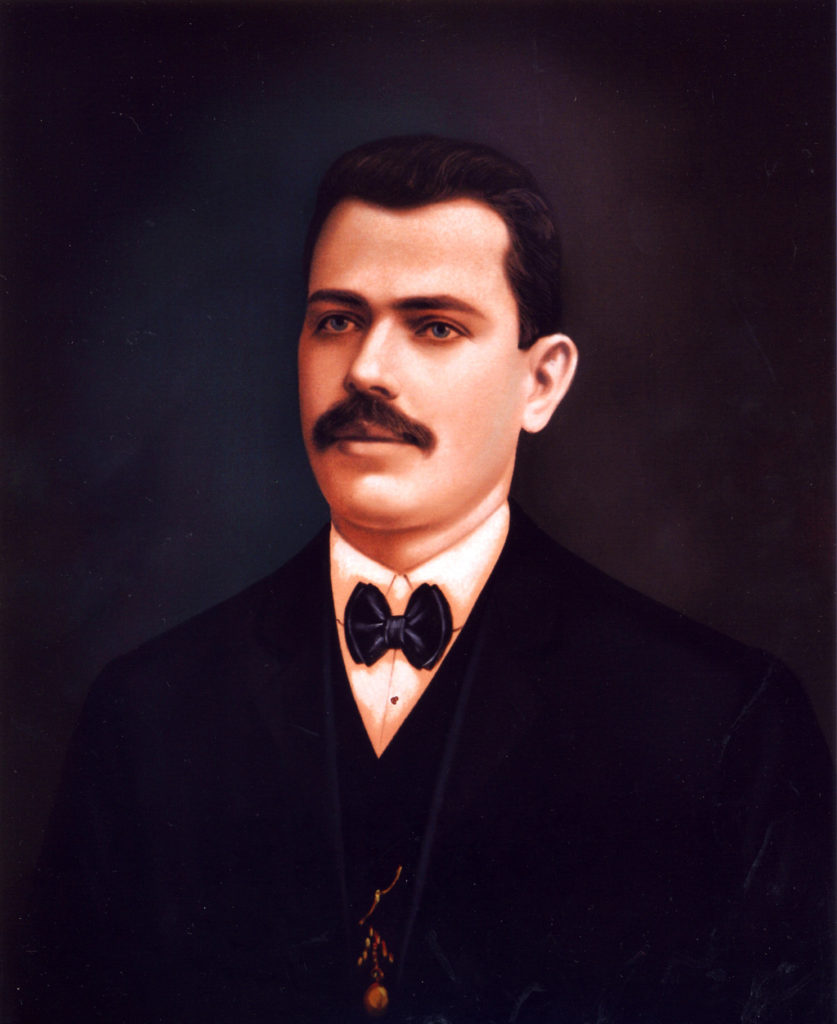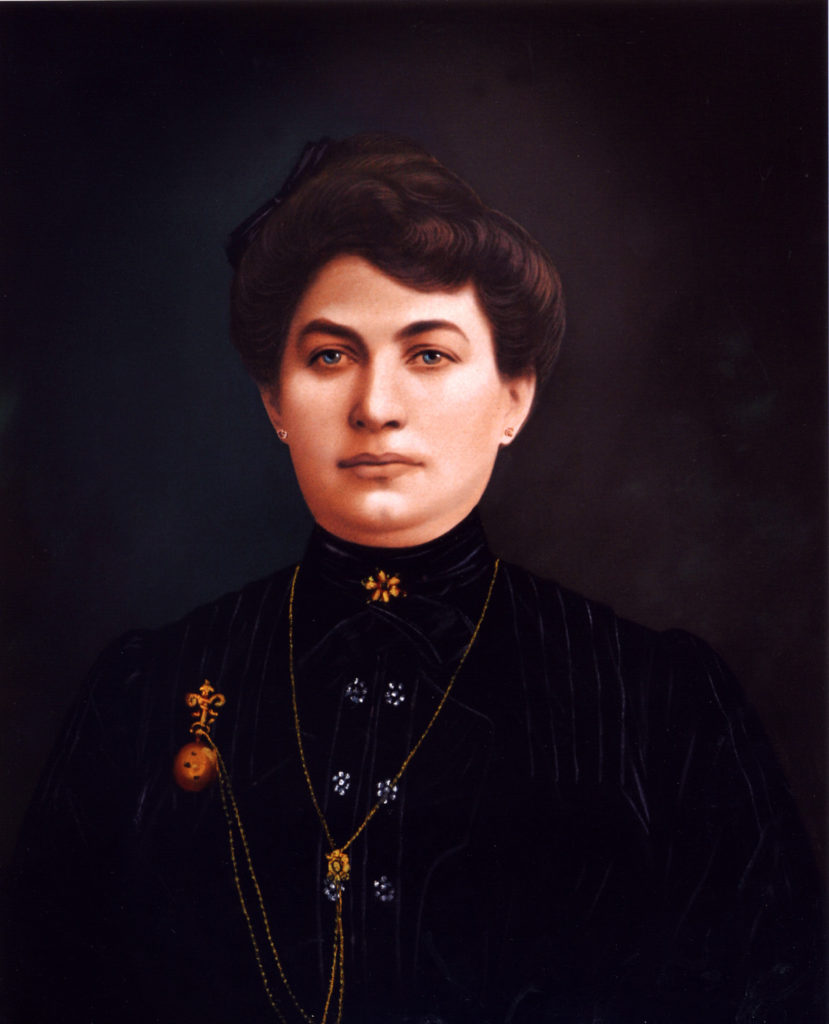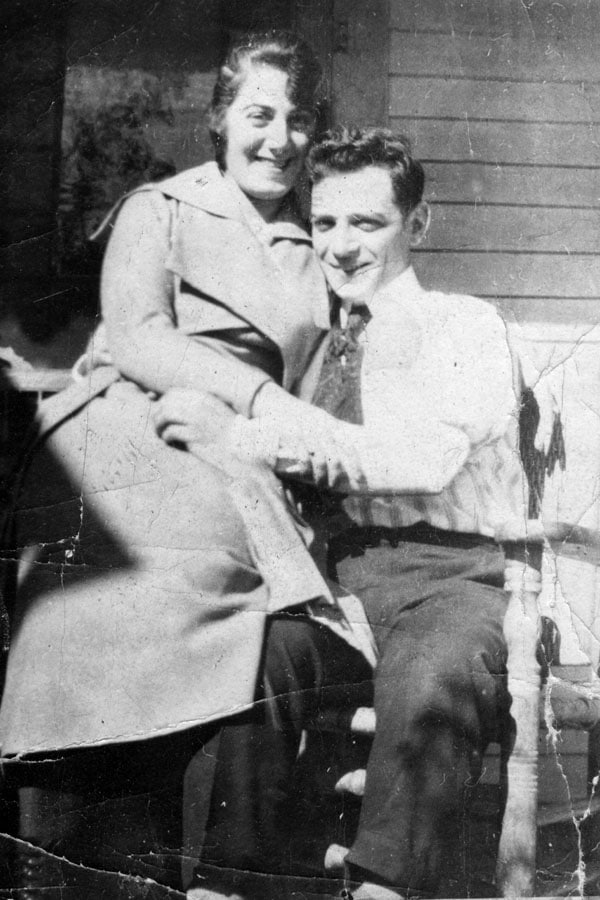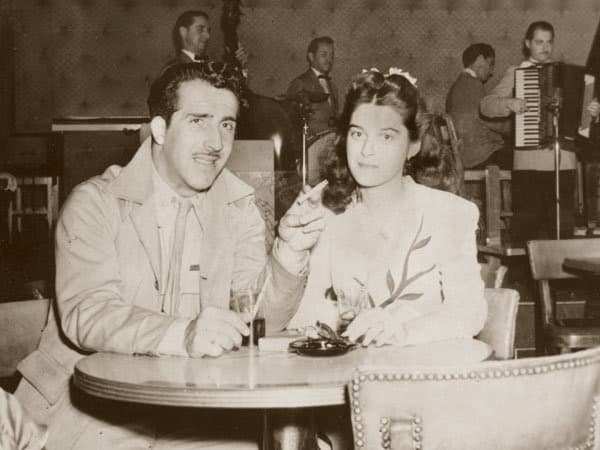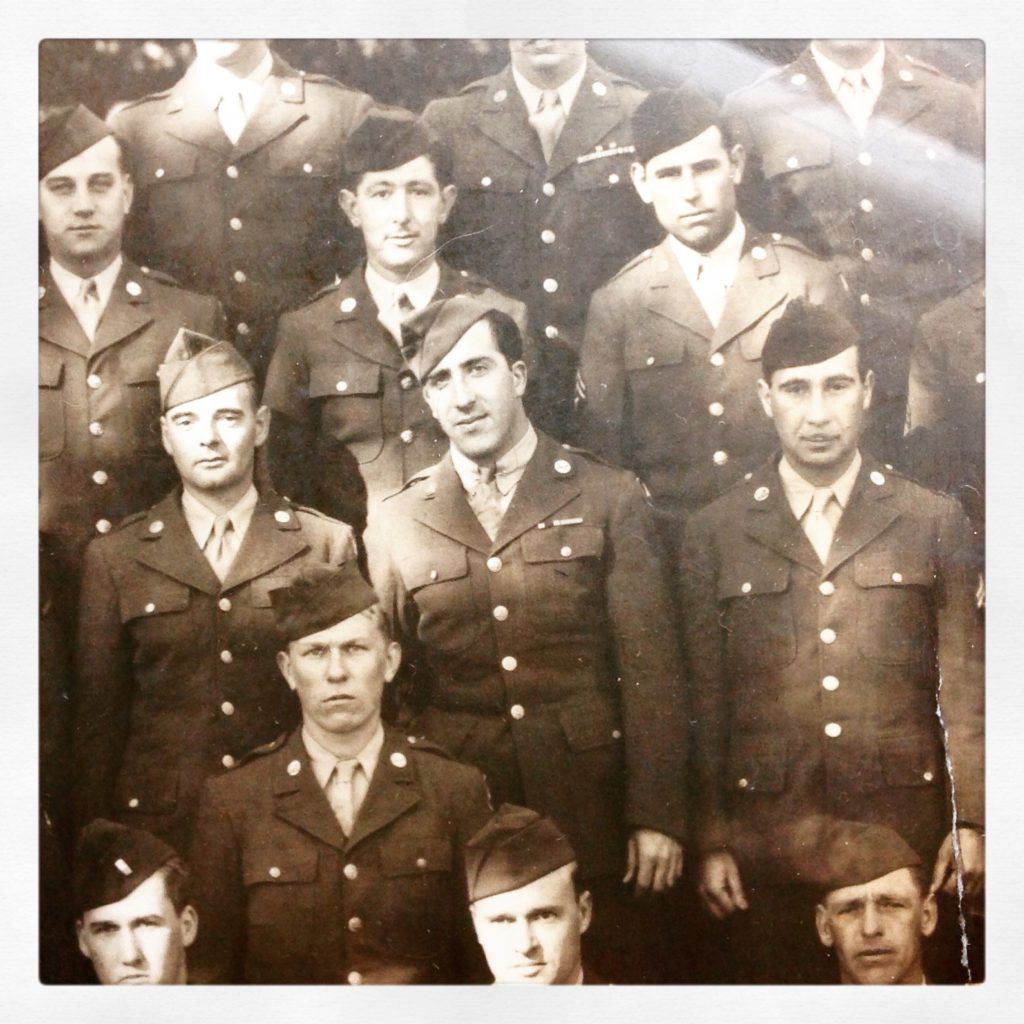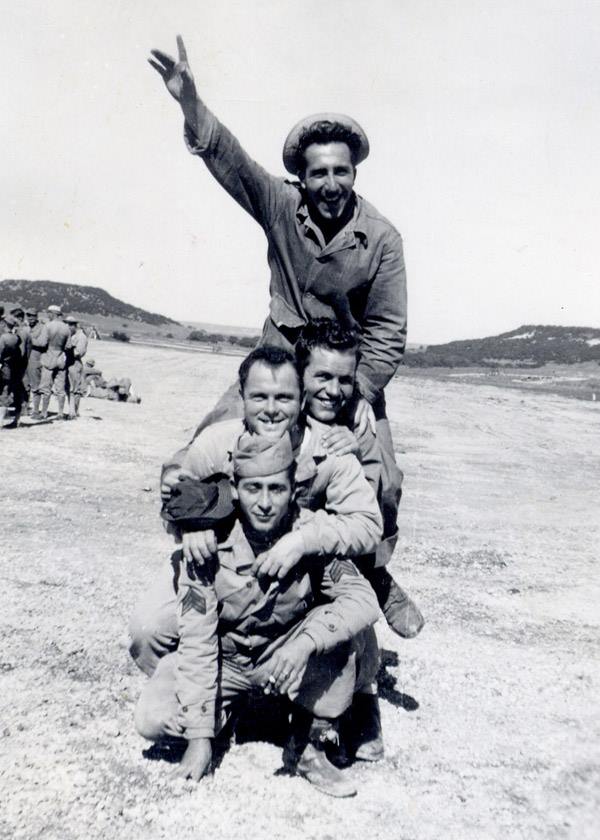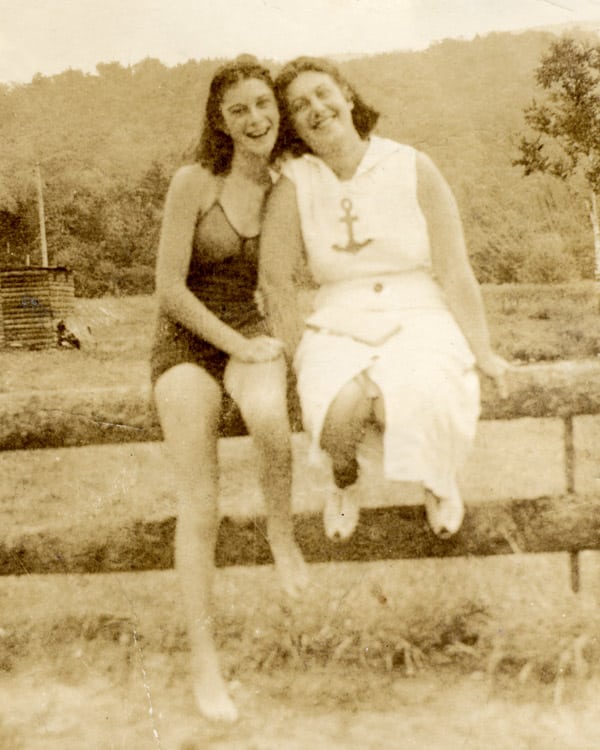
In 1888, at the age of eighteen, Micheal Cohen came to America. He established himself in New York City and soon sent for his wife, Freida, to bring her from Minsk to Manhattan. Together they would have eight children.
Micheal was Jewish and spoke Yiddish as his first language. He was conscripted into the Russian Army, but felt he had “little desire to serve a country that segregated and discriminated against his faith.” Deciding then to leave Russia for America, he sought work in the fashion industry, eventually finding success alongside several of his sons.
One of Micheal and Freida’s daughters, Rose, would marry shoe merchant Morris Snyder —also a child of Jewish immigrants from Minsk—only months before he shipped out to serve in the First World War, to “help save the world for democracy.”
Rose Cohen Snyder’s first child was born as her husband Morris was serving overseas. She told him in a letter that he was the father of a healthy baby boy, and he would carry this letter in his pocket for the duration of the war. They would have a second daughter, named Evelyn, in 1924.
And in the early 1940s, during the new “war years,” Evelyn Snyder would meet soldier Victor Chirco. On a train ride through New England, a New York-born son of poor Catholic Italian immigrant parents found himself smitten with a Jewish girl from small-town Vermont.
Victor and Evelyn’s daughter, Vicki Chirco, found herself inspired by the great love and fondness her mother Evelyn felt for her roots, and for her family’s story. Vicki now hosts the Cohen-Snyder Family Archive here on Permanent.org. This month, we’re honored to spotlight Vicki and her ongoing archive as she tells the story of her ancestors as they came to America in search of freedom, the beauty of acceptance, and the melding of cultural traditions.
One of several sons in a family plagued by poverty, Victor Chirco grew up in Queens, New York. Victor’s oldest brother John contracted tuberculosis and soon died, with his and Victor’s mother shortly to follow. Victor was twelve years old.
Four years later, Victor lied about his age and signed up for the National Guard, in search of direction, discipline, and a modest paycheck. Transitioning into army service, Victor trained at Camp Ethan Allen in Vermont in 1943. As part of the 559th Field Artillery, he served in the European theater, where he would suffer a wound at the Battle of the Bulge.
He would return to America, and after two years marry Evelyn in 1947.They were a controversial pairing on both sides of the family, with each coming from different spiritual and cultural worlds. Victor’s father, Francesco “Frank” Chirco, who was a Sicilian immigrant and spoke minimal English, initially found little common ground with Evelyn’s Jewish-American family.
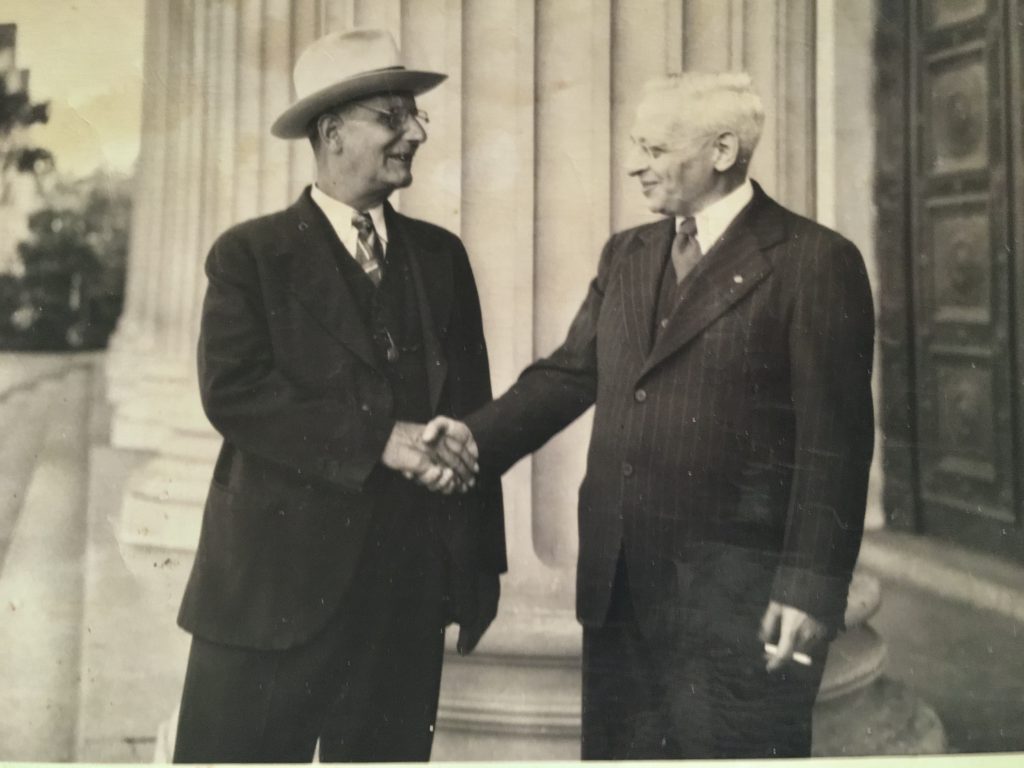
After two post-war years of navigating differences and finding common ground in the American immigrant experience—struggle, hope, and freedom—Francesco Chirco and Morris Snyder shook hands on August 29, 1947, united by the marriage of their children. Two young Americans, Victor and Evelyn, were married; a man of deep Italian heritage and a woman of Jewish roots, a union capturing a shared familial narrative of the American experience.
All chronicled here.
“Despite our differences,” Vicki says of her family’s place in America’s historical narrative, “we are all part of this country’s history, and every family story helps us to better understand our common experiences—good and bad—as Americans.”
An important part of our work here at Permanent.org is to ensure anyone can contribute their story to the historical records we leave for the future. Our public archives are designed to allow each member to tell their own stories, in their own words—and capture their unique and unheard perspectives and experiences in the historical narrative of our world. In sharing photos and details written from her perspective, Vicki Chirco is able to give insight into the character and strength of her family, beyond what typical data like census records and draft cards would be able to provide.
“This small snapshot was found among the scores of Evelyn’s saved photographs” Vicki writes about her father. “THIS was Vic Chirco! It captures his personality and the love of life he exuded even during wartime. It captures a moment of fun and friendship.”
About her mother Evelyn and grandmother Rose, Vicki writes: “This shot was likely taken at one of their favorite swimming holes and/or lakes that the family had access to not far from their home in Rutland, Vermont. Evelyn loved swimming, and especially in the lakes.”
Like us, Vicki believes that a single person, family, or story has the power to create history. She writes: “The Cohens are but one branch of this immigration story—my family story is but a ripple in the larger American narrative but no less significant. We each contribute every day to that narrative in our own ways both large and small.”
Though you may think your family’s story is but a ripple in the narrative of history, it’s stories like Vicki’s that add color and dimension to the typical archives of the past—to the straightforwardness of dense census records and bureaucratic clarity of draft cards—to preserve the character and ideals of everyone’s historical narratives beautifully and with character.
We hope this archive inspires you to share your own family stories for future generations.
We’d like to extend our thanks to Vicki Chirco for her detailed and thoughtful work on her archive, and for graciously allowing us to share it with our members as an exemplary contribution to the rich historical collection we’re building for the public right here on Permanent.org, where everyone has the power to preserve their story.

